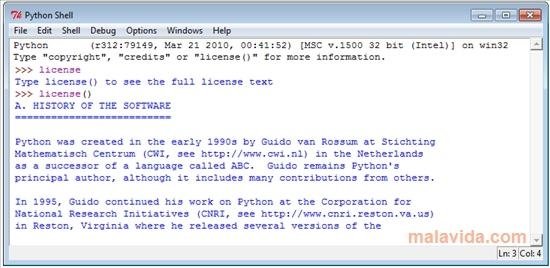

The instructor is a data scientist who's created many other data science-related courses, such as The Python for Data Science and Machine Learning Bootcamp, The Complete SQL Bootcamp 2021: Go from Zero to Hero, and Spark and Python for Big Data with PySpark.


Complete Python Bootcamp From Zero to Hero in Python by Udemyĭeveloped by Jose Portilla, this is probably the best Python course on Udemy. If your learning style matches the Codecademy text-based lessons more closely, then consider checking out Dataquest instead.ĥ. With that said, if you are getting into Python specifically for data science and machine learning, subscribing to DataCamp and taking this course is a good start. There are other options in this list that have more content for free.
Best text editor for python data science how to#
The free content you get with this course isn't much it stops at variables, which is only the beginning of learning how to program. Since DataCamp's material focuses on data science, this Python course has a data science flavor. Introduction to Python for Data Science by DatacampĭataCamp is an interactive platform, similar to Codecademy, but with videos incorporated into the course material. Unique features, such as interviews with influential Python programmers, in-depth reading materials and books, office hours, and discussion forums, add to the immersion.Ĥ. The team behind this course did a great job creating a Python learning environment. The speed and difficulty level seems a bit low, which several reviews echoed. I found this course's videos are much more organized and entertaining than others on this list. Taking this course will be a good starting point if you want a seamless transition to more advanced topics, such as working with data and databases. This course is the first installment of the Python for Everybody specialization on Coursera, which consists of five different courses that bring you up to intermediate-level knowledge of Python. Programming for Everybody (Getting Started with Python) by Coursera There's much more attention paid to teaching you the way to write real programs.ģ. I'd say, overall, Codecademy's course is much better. For one, if you learn better through video, this course is a better choice since each lesson has a recorded lecture. Even though it comes in as the second-highest Python course, it has over a 4x lower grade than Codecademy's.ĭespite this course's 4x lower rank, it still has a lot of value. Introduction to Python Programming by UdacityĪfter skipping Coursera's Machine Learning course, which you can see ranked in our machine learning course page, Udacity's Intro to Python Programming course comes in at the next highest rank. If you learn better through video, you may want to consider the next Python course on the list.Ģ. One downside to this course for many people is that it's text-based, which means you'll learn Python through an interactive, in-browser editor with a written lesson on the side. Many fundamental topics are covered that are pivotal to writing basic Python programs but are often completely ignored by other courses. The curriculum provides a solid foundation for solving problems with Python. The curriculum, lessons, quizzes, projects, and interactive platform make it obvious why Codecademy's course is a clear winner in traffic and referring domains. Fortunately, Codecademy has an updated version for Python 3, which I'll use instead for the following overview. Interestingly, the original URL ranked at the top of this analysis is Codecademy's course for Python 2, which you shouldn't start with since Python 3 supersedes Python 2. Introduction to Computer Science and Programming Using PythonĪn Introduction to Interactive Programming in Python (Part 1) Programming for Everybody (Getting Started with Python)Ĭomplete Python Bootcamp From Zero to Hero in Python

Top Keyword, Its Volume - the keyword that gives the most traffic and by how much.The column states the total number of unique websites that link to the course page. Referring Domains - this is the primary metric of interest.# of Keywords - the number of unique keywords for which this page appears in search engines.The percentage indicates the share of all website traffic that goes to this specific page. Traffic (desc), Traffic (Percent %) - this is the search engine traffic to this particular course page, as estimated by Ahrefs.# - the row index from Ahrefs (we need to drop this in the next step).


 0 kommentar(er)
0 kommentar(er)
